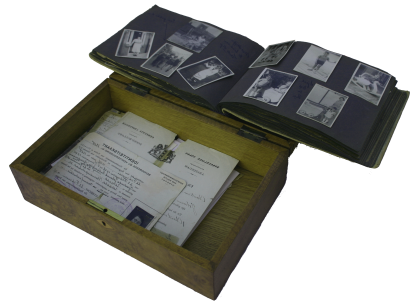Familienarchiv VERMEULEN/ENGWERDA/NIJDAM/ROORDA ANCESTRY
The case for genealogical research
How many times have you asked yourself this question? How many times have you questioned why you’re supposed to be on this earth? How many times have you questioned your very existence?
For me, the answer is countless times. And the question itself makes me ask more questions: can I ever know who I am? Why do I need to know who I am? Will any answer ever satisfy me?
When these questions overwhelm me, I find myself inspired by this quote by Indian sage, Ramana Maharshi:
“The question, ‘who am I?’ is not really meant to get an answer, the question ‘who am I?’ is meant to dissolve the questioner.”
Whoa. Dissolve the questioner. What does that even mean? How can dissolving my identity help me figure out who I am? Let’s try and find out.
The “answer” to “who am I” is our identity. Our identity is our all-encompassing system of memories, experience, feelings, thoughts, relationships, and values that define who each of us is. It’s the stuff that makes up a “self.”
Identity is a critical component of understanding who we are. Why? Because we can break up identity into components (values, experiences, relationship). These components we can identify and understand. Then, once we have understood the components of our identity, we can get a big-picture look at who we really are. In a nutshell: we’re a lot more than one thing. We’re a whole system of ideas and experiences.
Our need for identity
“Who am I?” gets at the heart of one of our most basic needs: our need for identity. We, as living beings, search for and find comfort in a solid sense of identity. It grounds us. It gives us confidence. And our sense of identity affects every single thing in our lives – from the choices we make to the values we live by.
According to Shahram Heshmat Ph.D., author of Science of Choice:
“Identity relates to our basic values that dictate the choices we make (e.g., relationships, career). These choices reflect who we are and what we value.”
Wow. Our identities are almost avatars for the values and tenets that we hold. Our identity reflects what we believe, what we do, and what we value.
Powerful stuff. Yet, our sense of identity can be compromised by outside factors. How is that possible? Well, Dr. Heshmat explains:
“Few people choose their identities. Instead, they simply internalise the values of their parents or the dominant cultures (e.g., pursuit of materialism, power, and appearance). Sadly, these values may not be aligned with one’s authentic self and create an unfulfilling life.”
This is what can cause problems. Here’s the painful truth: much of our identity was forced upon us. This inorganic identity causes us to experience a tremendous amount of stress.
Why? Because we know that “that identity” is false. It’s something demanded of us. The problem is, we don’t know what our “organic” identity is. And that’s why we ask, “who am I?”
I hope that this book on my family’s genealogy will assist my children here in New Zealand and those in the Netherlands finding this organic identity.

Der Archivar dieses Familienarchivs ist leon vermeulen.
Durch dieses digitale Archiv können Sie mir - leon vermeulen - helfen, das Familienarchiv zu füllen und die Familiengeschichte zu beschreiben.
Zugang zu diesem Familienarchiv
Der Zugriff auf dieses Familienarchiv ist nur auf Einladung des Familienarchivars möglich. Möchten Sie Zugang zum -Familienarchiv haben, weil Sie interessantes Material für das Familienarchiv haben oder weil Sie bei der Beschreibung von Fotos helfen möchten?